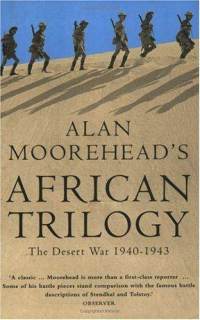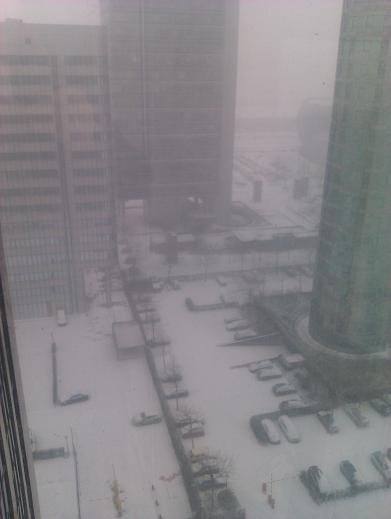
Mediterranean Front, A Year of Battle, The End in Africa
Alan Moorehead
642 pages including index
published in 1941, 1943,1943, compilation 1945
If journalism is history as first draft, then these three books, Mediterranean Front, A Year of Battle, The End in Africa; published in one volume as African Trilogy are history as second draft. Written while the Second World War was still ongoing, each of these books tell the story of one year of war in the desert, as seen by one of the preeminent war correspondents of the era. Written largely without the benefit of hindsight, from the notes that Moorehead took at the time, these three books together not only provide an interesting look at an important period in World War II, which England largely had to fight on its own, but also at how people at the time thought about the war, when the outcome was by no means certain yet.
If you’ve heard of Alan Moorehead, it’s probably for his post-war books on the exploration of the Nile, The White Nile (1960) and The Blue Nile (1962). During the Second World War he was a correspondent for the Daily Express, following the war in North Africa, the invasion of Sicily and the war in Italy. As becomes clear from reading these three volumes, Moorehead wasn’t one of those journalists content to stay at headquarters, but went chasing down the front whenever he could. Some of the incidents here certainly read like Boy’s Own Adventures stuff, several times barely escaping running into the enemy at several moments. Moorehead is a born raconteur, aimable, slightly understated, though with some of the attitudes and language use of the time that might seem strange to modern readers.
